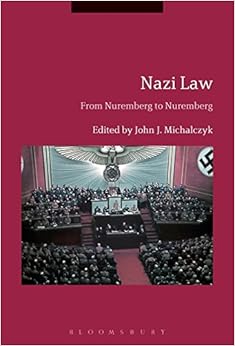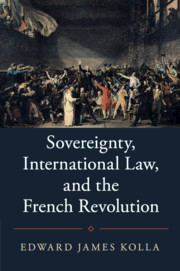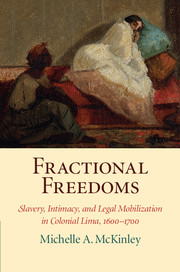STUDIES
Enrique Gómez Royo: Semblanza de un insigne romanista, pp 1-10
Enrique Gómez Royo: Portrait of a distinguished Roman Lawyer
Juan Alfredo Obarrio Moreno

El Derecho Común: notas sobre una realidad histórico-jurídica, pp 10-26
Common Law: notes on historical and legal reality
Sandra Adams

Algunos fundamentos y convergencias de la experiencia administrativa
romana sobre el medio ambiente, los recursos naturales y res publicae,
pp 27-53
Some fundamentals and convergences of the Roman administrative experience on the environment, natural resources and res publicae
Juan Miguel Alburquerque

Delitos contra la moral social en la Eisagoce, pp 54-68
Crimes against social morals in Eisagoce
Francisco J. Andrés Santos

Captación de voluntad en los testamentos y ‘prohibición de confesores’ de Roma a la actualidad, pp 69-116
Undue influence in wills and ‘prohibition of confessors’ from Rome to the present
María José Azaustre Fernández

Filibusterismo académico, pp 117-145
Scholarly Filibusterism
Juan Francisco Baltar Rodríguez

La restitución dotal en Derecho justinianeo, pp 146-173
The dowry restitution in the justinian law
Lucía Bernad Segarra

Da Procopio di Gaza al silentiarius Enea: note minime sulla costitutio incerti imperatoris de aquaeductu, pp 174-197
From Procopius of Gaza to the silentiarius Aeneas: Short Notes on costitutio incerti imperatoris de aquaeductu
Paola Biavaschi,

Un viaje al pasado: en torno a los orígenes del artículo 612 del
Código civil español. Un estudio de tradición romanística, pp 198-214
A journey into the past: on the origins of article 612 of the Spanish Civil Code A study of Romanistic tradition
Gabriel Buigues Oliver,

Dote tra Familia e Civitas, pp 215-235
Dowry between Familia and Civitas
Maria Casola,

La condictio en Sabino: a propósito de D.13.3.2, pp 264-277
The condictio in Sabino: a propos of the D.13.3.2
José María Espinosa Isach,

Sistemática y ius civile en las obras de Quintus Mucius Scaevola y de Acursio, pp 278-298
Systematics and ius civile in the works of Quintus Mucius Scaevola and Accursius
Antonio Fernández de Buján,

Audiencia verbal: Juicios rápidos en la Edad Moderna, pp 299-311
Verbal audience: fast trials in the Modern Age
Laura Gómez Orts,

Problemi di diritto ereditario nei VII Libri Membranarum di Nerazio, pp 312-366
Problems of inheritance law in the VII books Membranarum by Neratio
Yuri González Roldán,

Perspectivas en torno al medioambiente urbano. Especial referencia a
las ruinas de edificios, incendios, basuras, inmisiones, etc., pp
367-397
Perspectives on the urban environment. Special reference to the ruins of buildings, fires, rubbish, immissions, etc.
Carmen Jiménez Salcedo

La contribución de la Escuela de Salamanca al desarrollo de la
ciencia jurídica. El dominium y los actos traslativos de dominium en el
pensamiento de D. de Soto, pp 398-450
The contribution of the Escuela de Salamanca to the development of
legal science. The dominium and the translative acts of dominium in the
doctrine of D. de Soto
Mª Lourdes Martínez de Morentin Llamas

Aproximación a los elementos jurídico-institucionales en las relaciones internacionales de la Grecia Antigua, pp 451-472
An Approach to the legal-institutional elements in the international relations of the Greek Antiquity
Leandro Martínez Peñas

Las Confesiones de Agustín de Hipona Sociedad y Derecho en el siglo IV d.C. pp 473-492
Augustine of Hippo’s Confessions Society and Law in the fourth century AD
José Antonio Martínez Vela

Una historia retrospectiva de la dignidad humana. De la Constitución española al Descubrimiento de América, pp 493-545
A Historical Retrospective of Human Dignity. From the Spanish Constitution to the Discovery of America
Aniceto Masferrer

Las mujeres y la tutela impuberum durante el reinado de Diocleciano, pp 546-568
Women and tutela impuberum during Diocletian’ s reign
Emilia Mataix Ferrándiz

Michel de L’Hospital: Between Scientia Juris and Ars Politica, pp 569-598
Maria Natale

La Cultura jurídica medieval del saber en El juego de los abalorios de Hermann Hesse, pp 599-647
The medieval legal culture of knowledge in The Glass Bead Game by Hermann Hesse
Juan Alfredo Obarrio Moreno

The ideal judge in the 17th century: the example of Gabriel Álvarez de Velasco’s Iudex Perfectus, pp 648-659
Cato van Paddenburgh

Estudio sobre la pervivencia estructural de los criterios que
conforman el onus probandi en Derecho romano clásico, en los Furs y en
Les Costums de Tortosa, pp 660-685
A study on the structural survival of the criteria that make up the
onus probandi in classic Roman law in the Furs and Les Costums de
Tortosa
José Miguel Piquer Marí

Die arrae bei Westgoten und Baiern. Kontinuität und Verballhornung einer antiken Praxis, pp 686-694
AArrae in Visigothic and Bavarian Law. Continuity and Malapropism of an Ancient Practice
Johannes Platschek

Why Generalize Contract Law? The Russian Perspective on the Benefits
of the Western European Legal Style during the Long 19th Century, pp
695-710
Dmitry Poldnikov

El significado de las legiones en la creación del imperio romano. La
figura del legionario en la vida militar y su aportación al ámbito
público civil, pp 711-773
The importance of legions for the foundation of the Roman Empire.
The figure of the legionary in military life and its contribution to the
civil public sphere
Vanessa Ponte

Herejes, paganos, judíos y samaritanos: prohibiciones para el acceso
a los cargos públicos en la legislación religiosa de época postclásica y
justinianea, pp 774-785
Heretics, pagans, Jews and Samaritans: prohibitions of holding
public office in post- Classical and Justinian religious legislation
Elena Quintana Orive

Cinco privilegios monásticos confirmados por Alfonso IX de León y
Galicia en tierras de Laxe (A Coruña) el 25 y 26 de julio de 1228, pp
786-804
Five monastic privileges confirmed by Alfonso IX of Leon and Galicia in the lands of Laxe (A Coruña) 25 and 26 July 1228
Luis Rodríguez Ennes

The origins of Ius commune: glosses and glossaries from the tenth and eleventh centuries, pp 805-817
Roldán Jimeno Aranguren

Los principia iuris como medio de armonización y unificación del
Derecho europeo a través de la metodología histórico-comparativa, pp
818-864
Principia iuris as a means of harmonization and unification of European law through historical-comparative methodology
María Salazar Revuelta, Ramón Herrera Bravo

IEphesos 4 y la teoría de los contratos consensuales en Derecho helenístico, pp 865-880
IEphesos 4 and the Theory of Consensual Contracts in Hellenistic Law
Carlos Sánchez-Moreno Ellart

La fundación como entidad jurídica corporativa en la civilización romana, pp 881-916
The foundation as a corporate legal entity in Roman civilization
Guillermo Suárez Blázquez

Spunti di riflessione sulla diiudicatio visigota in Form. Visig. 40, pp 917-929
Reflection on the Visigothic diiudicatio in Form. Visig. 40
Simona Tarozzi

Il crimen ambitus dal Corpus Iuris Civilis al De dignitate di Martino Garati da Lodi, pp 930-940
The crimen ambitus from Corpus Iuris Civilis to De Dignitate of Martino Garati da Lodi
Andrea Trisciuoglio

Jurisdicción eclesiástica y poder real en la Valencia del s. XVII. La visión del jurista Francisco jerónimo de León, pp 941-
Ecclesiastical Jurisdiction and Royal Power in the Valencia of the
17th Century. The vision of the jurist Francisco Jerónimo de León
Nuria Verdet Martínez

Algunas consideraciones en torno a las construcciones en el litus maris, pp 977-992
Some considerations on the constructions in the litus maris
Ana Zaera García

La fe pública administrativa en la recepción de la voluntas del testador en el Bajo Imperio, pp 993-1007
Administrative public faith in the reception of the voluntas of the testator in the low Empire
José Luis Zamora Manzano

Levitas Animi, pp 1008-1031
Weak Sex
María José Bravo Bosch

BOOK REVIEWS
NEWS











